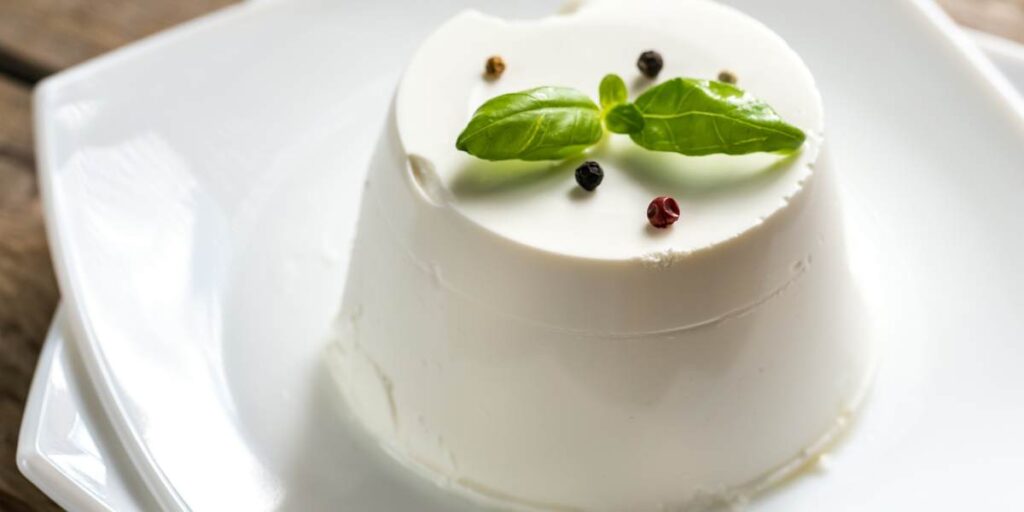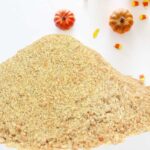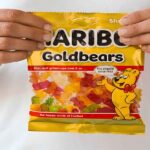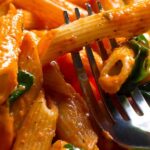Ricotta is a soft and creamy cheese popular in the Italian tradition. It can be made with different ingredients and is used in baking lasagna, pizzas, and savory dishes. For Muslims wondering if ricotta is halal, the key is checking the production process and ingredients to ensure they meet halal standards.
Is Ricotta Cheese Halal?
Ricotta cheese can be halal if it follows Islamic dietary laws. Made from cow’s milk, sheep’s milk, cream, salt, and whey, it might contain rennet from a calf’s stomach, which is not halal.

Check the ingredient list and halal-certified labels on packages to ensure the cheese is safe for Muslims. Certified brands have Islamic organizations confirm their halal status.
How Milk Turns into Curds and Whey
Ricotta cheese is produced by coagulating milk. The process involves heating milk and adding substances such as citric acid, gluconic-delta-lactone (GDL), or an enzyme known as rennet, derived from the stomach lining of calves. These agents cause the milk proteins to clump together into curds, while the remaining liquid, whey, is often a byproduct from making other hard cheeses like mozzarella, provolone, and cheddar.
Making the Curds Stick Together
After the curdling, the next big step is to get those curds to stick together, a process called coagulation. We keep an eye on the temperature and add stuff to make the pH level just right so the texture and flavor of the Ricotta are perfect. Then, we stir gently and sometimes use machines to help efficiently separate the curds from the whey.
Getting the Cheese Ready
Once we have our curds, we cook and drain them to remove extra water, which is important for the Ricotta’s texture. Then, we add salt. Salt does two things: it makes the cheese taste better and keeps it from going bad too quickly.
Packing and Checking the Cheese
The final step involves packaging the Ricotta in containers or bags and sealing them to preserve freshness. Sometimes, the cheese is pasteurized to eliminate harmful bacteria, extending its shelf life. Before Ricotta is distributed to stores, it undergoes rigorous quality checks.
These include testing for pH levels, protein content, and the absence of harmful bacteria. The appearance, texture, and taste are also carefully evaluated to ensure the cheese meets high quality and safety standards, guaranteeing consumers receive a premium, safe product.
Can Ricotta Cheese Be Made Without Rennet?
Ricotta cheese is a soft cheese that usually uses animal-based rennet. You can make ricotta cheese without animal rennet using simple recipes with lemon juice or vinegar as natural coagulants. Store-bought options include animal rennet, so check the product label for halal status. Homemade ricotta cheese requires few ingredients and has a fresh flavor, making it worthwhile for those avoiding animal products.
- Ricotta cheese is a soft cheese.
- Animal-based rennet is often used.
- Homemade Ricotta cheese can be made without animal rennet.
- Use lemon juice or vinegar as natural coagulants.
- Check the product label for halal options.
List Of Halal Ricotta Cheese Brands
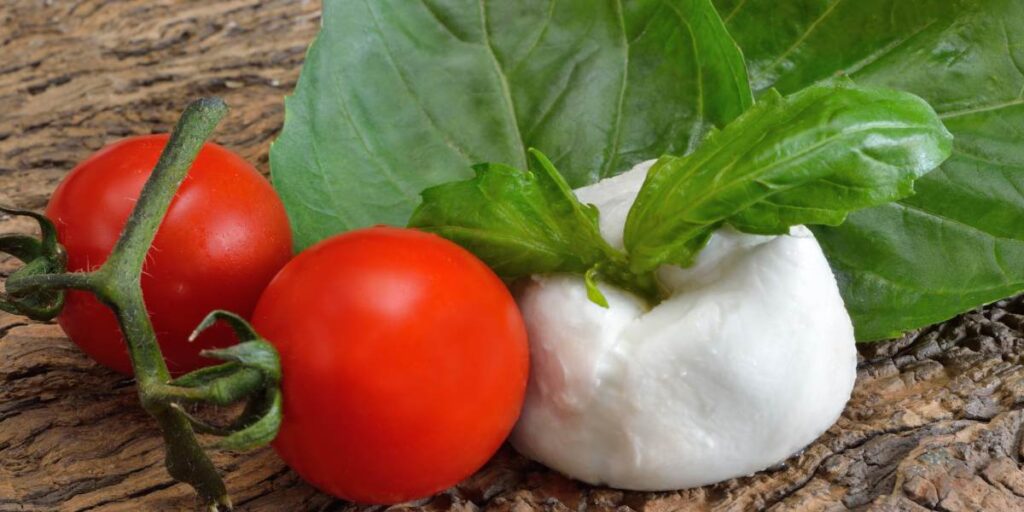
Check certifications to find Halal Ricotta cheese. BelGioioso Ricotta Cheese uses natural ingredients with no artificial preservatives. Frigo Ricotta Cheese is Kosher certified and made from pasteurized cow’s milk.
Fino Ricotta Cheese mentions halal on its packaging, while Stella Ricotta Cheese lacks halal and Kosher certification. Dragone Ricotta Cheese is made from pasteurized skim milk and cream but is not certified.
Here’s the information formatted into a table for clarity:
| Brand | Halal Certified | Ingredients |
|---|---|---|
| BelGioioso Ricotta | Yes | Natural ingredients |
| Frigo Ricotta | No | Pasteurized cow’s milk |
| Fino Ricotta | Yes | Cow’s milk, fat-free |
| Stella Ricotta | No | Pasteurized whole milk, cream |
| Dragone Ricotta | No | Pasteurized skim milk, cream |
Safe options include those with clear halal certifications. Checking the packaging helps ensure the cheese meets Muslim halal standards.
How to Identify Halal Ricotta Cheese
Buying halal ricotta cheese requires checking the ingredient list for animal-derived ingredients like rennet. Kosher certification and clear halal labeling on the packaging help ensure compliance with Islamic dietary laws.
Look for preservatives and additives to avoid eating non-halal ricotta cheese. Brands with halal practices provide a safer choice, ensuring the product meets halal standards.
Ingredients Used In Ricotta Cheese Production
Ricotta cheese is made using cow’s or sheep’s milk. The whey is curdled with a starter culture and enzyme, often rennet. The milk is heated and stirred, and the curds are drained and pressed. Some ricotta is salted and flavored with herbs and spices for a unique flavor. Halal status depends on using animal-derived rennet, plant-based rennet, or microbial enzymes.
- Cow’s milk
- Sheep’s milk
- Whey
- Curdled
- Animal-derived rennet
Conclusion
Ricotta cheese can be halal if it meets specific standards. However, ingredients and packaging must be checked for animal-derived ingredients like rennet. Many cheeses use rennet from calves, which might be haram. To ensure safety, look for halal or kosher certification on the label. Always check the ingredient list and choose brands that guarantee their products are halal.
Frequently Asked Questions
Is Feta Cheese Halal?
Feta cheese can be halal if it uses halal-sourced ingredients. The list of ingredients should be checked for any Haram ingredients. If the cheese is made with halal-sourced milk and rennet, it is halal. Always verify that Feta cheese does not have Haram ingredients included.
Is Parmesan Cheese Halal?
Parmesan cheese can be halal if it uses halal-sourced ingredients. Check the ingredients list to avoid Haram ingredients like animal rennet. Always confirm that Parmesan is sourced from a reliable place with halal certification.
Can Muslims eat cottage cheese?
Cottage cheese can be halal if it meets specific requirements. It is made with acid from curdling milk, similar to mozzarella, cheddar, and Colby. The milk-curdling enzymes and bacterial cultures used must be halal-suitable for cottage cheese to be permissible for Muslims.
Is there nonhalal cheese?
Cheese can be non-halal if it contains animal rennet from non-halal sources. Ricotta cheese may include animal products in its cheese-making process. The source of rennet should be checked to avoid the addition of non-halal ingredients. Always specify the source to ensure halal status.
